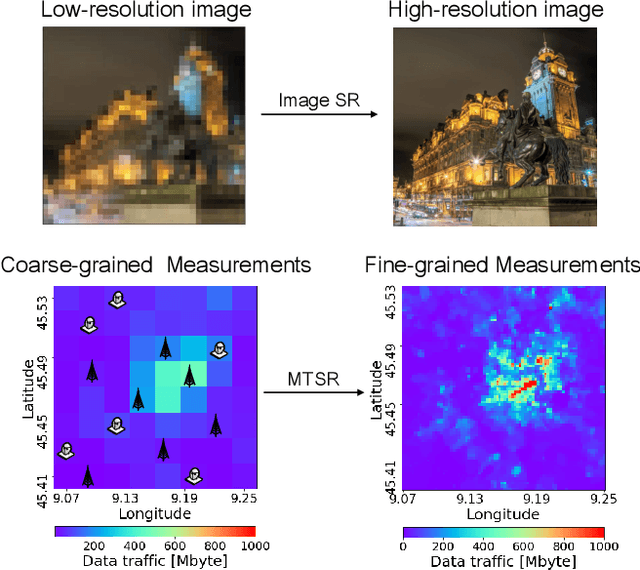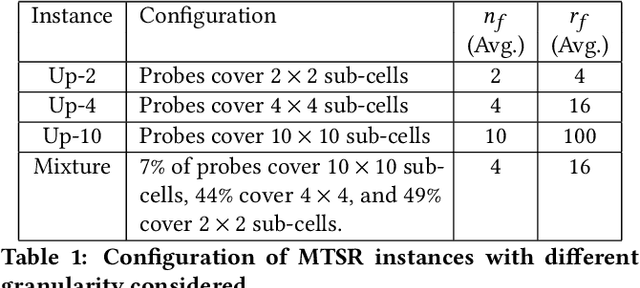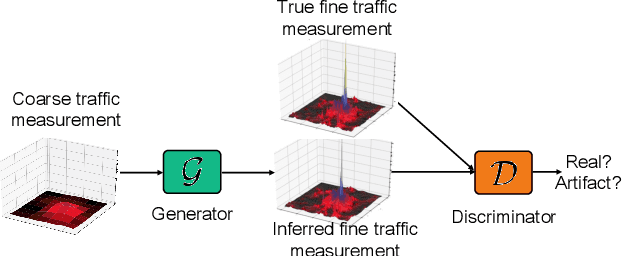ZipNet-GAN: Inferring Fine-grained Mobile Traffic Patterns via a Generative Adversarial Neural Network
Paper and Code
Nov 07, 2017



Large-scale mobile traffic analytics is becoming essential to digital infrastructure provisioning, public transportation, events planning, and other domains. Monitoring city-wide mobile traffic is however a complex and costly process that relies on dedicated probes. Some of these probes have limited precision or coverage, others gather tens of gigabytes of logs daily, which independently offer limited insights. Extracting fine-grained patterns involves expensive spatial aggregation of measurements, storage, and post-processing. In this paper, we propose a mobile traffic super-resolution technique that overcomes these problems by inferring narrowly localised traffic consumption from coarse measurements. We draw inspiration from image processing and design a deep-learning architecture tailored to mobile networking, which combines Zipper Network (ZipNet) and Generative Adversarial neural Network (GAN) models. This enables to uniquely capture spatio-temporal relations between traffic volume snapshots routinely monitored over broad coverage areas (`low-resolution') and the corresponding consumption at 0.05 km $^2$ level (`high-resolution') usually obtained after intensive computation. Experiments we conduct with a real-world data set demonstrate that the proposed ZipNet(-GAN) infers traffic consumption with remarkable accuracy and up to 100$\times$ higher granularity as compared to standard probing, while outperforming existing data interpolation techniques. To our knowledge, this is the first time super-resolution concepts are applied to large-scale mobile traffic analysis and our solution is the first to infer fine-grained urban traffic patterns from coarse aggregates.
 Add to Chrome
Add to Chrome Add to Firefox
Add to Firefox Add to Edge
Add to Edge